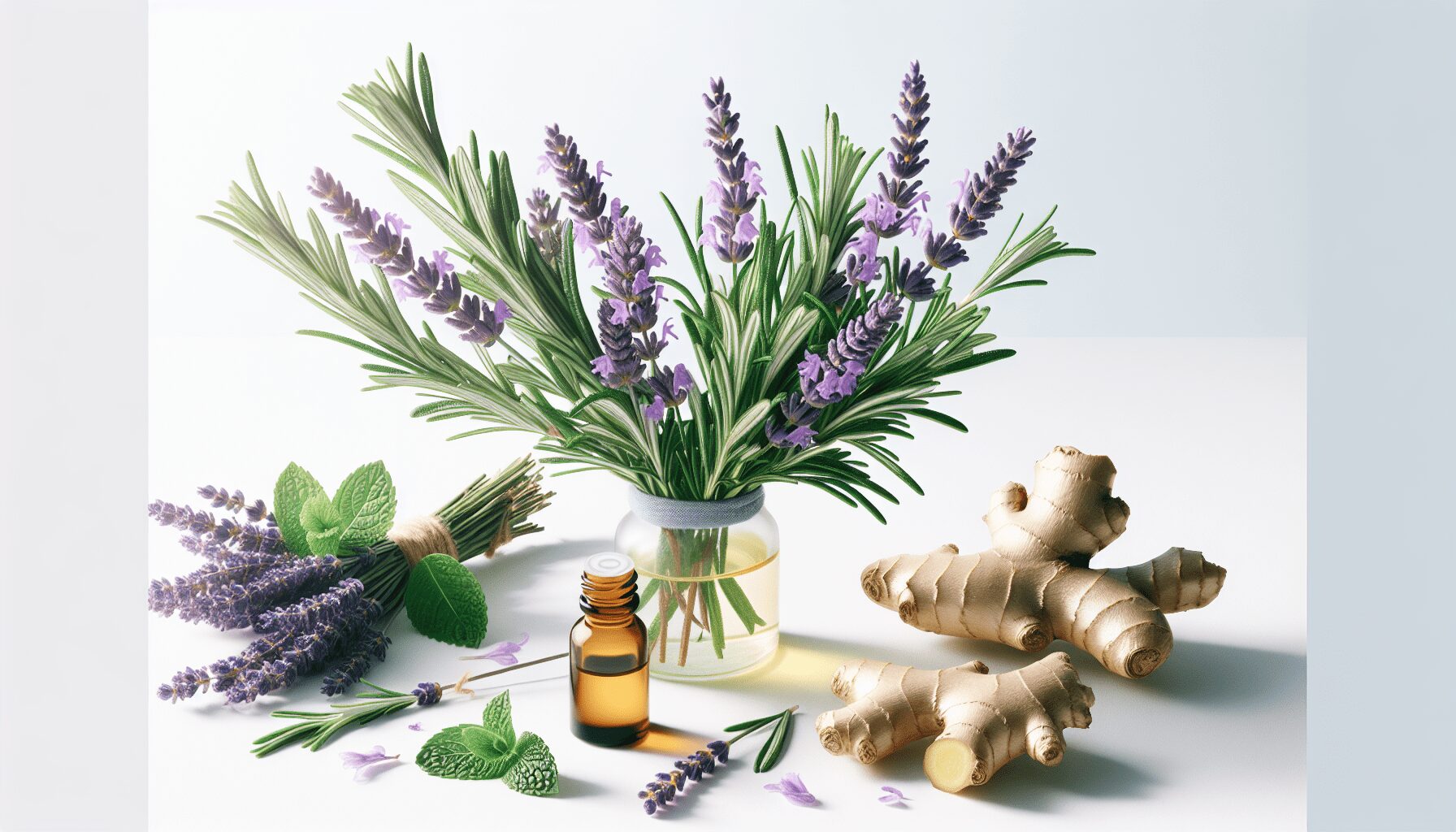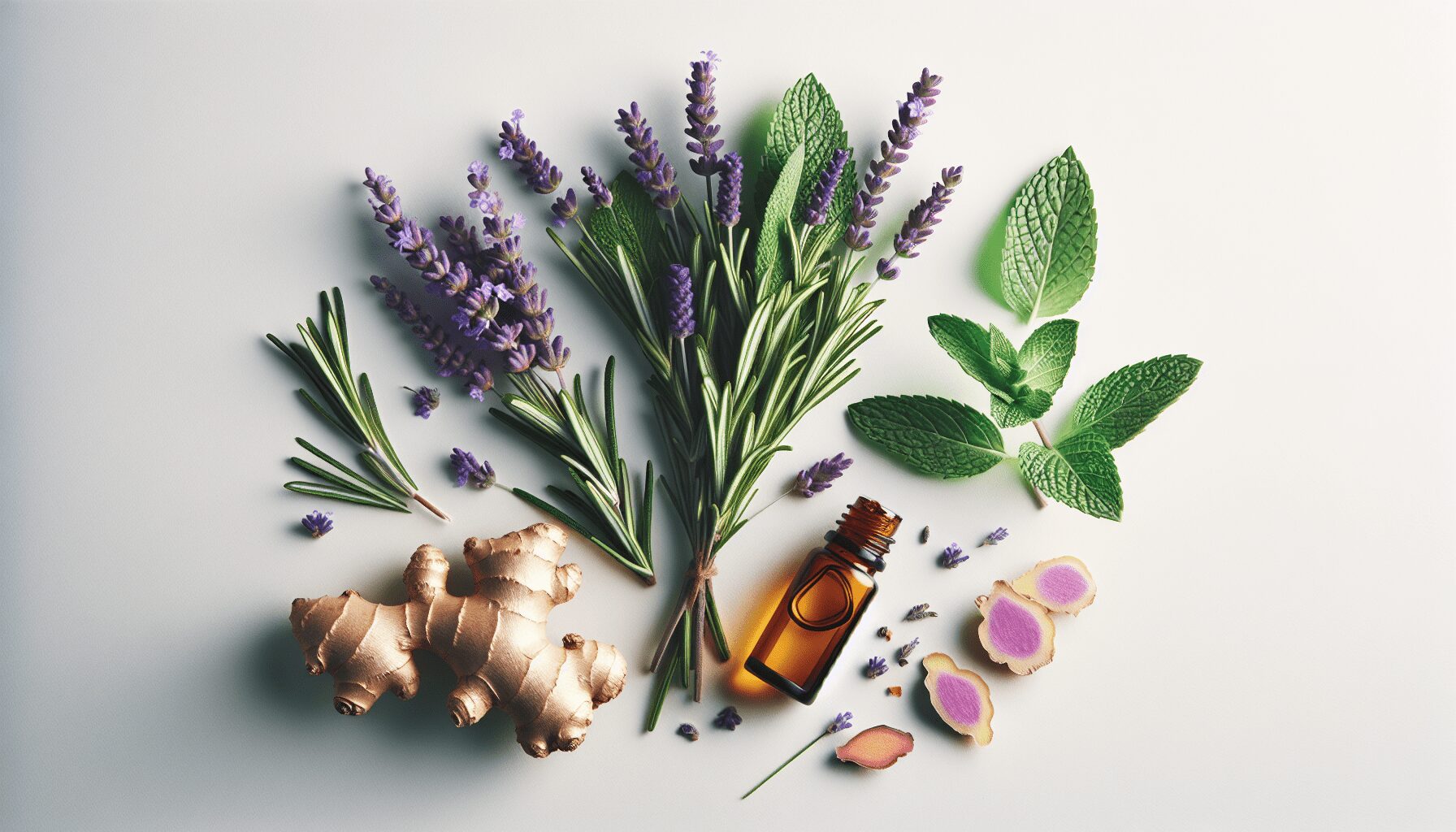You can turn to nature’s medicine cabinet to find relief from headaches and migraines. In this article, you’ll discover how familiar herbs such as Wild Rose, Lavender, and Coriander can help ease the pain and frequency of these debilitating ailments. You’ll also learn about the traditional Iranian remedy combining Violet, Coriander, and Rose, backed by modern research.
This guide will walk you through the science behind these herbal treatments, offering tips on preparation and usage to have remedies at your fingertips whenever you need them. So, gather your garden shears and aromatic herbs for a natural approach to headache relief that blends tradition with contemporary studies.

This image is property of i.ytimg.com.
Herbs for Headaches & Migraines: Natural Remedies that Work!
Understanding Headaches and Migraines
Headaches and migraines can be a real hassle, disrupting your daily activities and lowering your quality of life. To effectively combat them, it’s crucial to understand the basics of what you’re dealing with.
Types of Headaches
There are several types of headaches, each with its own set of causes and symptoms. Tension headaches are the most common, often described as a constant ache or pressure around the head, particularly at the temples or back of the head and neck. Cluster headaches, another type, involve severe burning and piercing pain, typically around one eye. Migraines, however, are a bit more complex, involving intense, throbbing pain often accompanied by nausea, vomiting, and sensitivity to light and sound.
Migraine Triggers
Migraines can be triggered by a variety of factors, including dietary elements like alcohol and caffeine, environmental factors like bright lights and strong smells, and physiological factors such as hormonal changes and stress. Identifying these triggers can be an effective way to manage and minimize migraine episodes.
Why Consider Herbal Remedies?
You might wonder why you should consider herbal remedies when treating headaches and migraines, especially when over-the-counter medications are readily available. Here’s why:
Benefits of Using Herbs
Herbal remedies offer a natural and often gentler alternative to pharmaceuticals. They can be particularly beneficial for people who experience adverse side effects from conventional medications. Herbs like wild rose, lavender, coriander, feverfew, and violet have been used in traditional medicine for centuries for their calming, anti-inflammatory, and pain-relieving properties.
Limitations and Precautions
While herbs can be incredibly effective, they do come with their limitations and precautions. Always consult with a healthcare provider before starting any new herbal regimen, especially if you are pregnant, nursing, or taking other medications. It’s also essential to be aware of potential allergies and to start with small doses to gauge your body’s reaction.
Top Herbs for Headache Relief
Let’s delve into the specific herbs that can offer significant relief from headaches and migraines.
Wild Rose
Wild Rose, or Rosa rugosa, is a stress-relieving herb that has been widely used in traditional medicine. The aromatic qualities of wild rose are excellent for relaxation, which can help alleviate headaches triggered by stress.
Lavender
Lavender is renowned for its calming properties and is frequently used in aromatherapy to reduce tension and anxiety. This makes it a great option for tension headaches.
Coriander (Cilantro)
Coriander, also known as cilantro, isn’t just a culinary delight. Its seeds are rich in essential oils and compounds that can help alleviate headaches through their anti-inflammatory and pain-relieving properties.
Feverfew
Feverfew is often recommended for its anti-inflammatory qualities. It’s particularly effective against migraines, making it a staple in many herbal headache remedies.
Violet
Violet, especially the species Viola odorata, has a longstanding reputation for its pain-relieving attributes. It’s versatile and can be used in various forms, such as tinctures, teas, or even capsules.

Wild Rose: A Natural Stress Reliever
Historical Use in Medicine
Wild rose has been utilized for centuries, dating back to traditional Chinese medicine and Native American remedies. Historically, it was used to treat a variety of ailments, from digestive issues to skin conditions.
Modern Applications
Today, wild rose is primarily used in aromatherapy for its calming effects, which can help reduce stress-induced headaches. The petals can also be made into teas or tinctures for internal use.
Lavender: The Aromatherapy Champion
How to Use Lavender
You can use lavender in several ways to benefit from its headache-relieving properties. Essential oils can be diffused or applied topically to your temples and wrists. Lavender can also be used in teas or as a dried herb in pillows or sachets.
Scientific Research Supporting Lavender
Numerous studies have shown lavender’s efficacy in reducing anxiety and tension, which are common triggers for headaches. Research has even demonstrated that lavender can be as effective as some prescription medications for treating migraines, making it a powerful tool in your natural remedy arsenal.

Coriander: Not Just a Culinary Herb
Medicinal Properties of Coriander
Coriander seeds are packed with essential oils and compounds like linalool, which have antioxidant, anti-inflammatory, and pain-relieving properties. These properties make coriander an excellent choice for treating headaches and migraines.
Creating Coriander Hydrosol
Coriander hydrosol is a fantastic way to harness the herb’s medicinal properties. To make coriander hydrosol, you’ll need a still, coriander seeds, and distilled water. The process involves distillation, where the steam carries the essential oils and other compounds from the seeds, condensing into a potent liquid that can be used for various applications, including as a spritz for headache relief.
Feverfew: The Migraine Fighter
Active Compounds in Feverfew
Feverfew is packed with parthenolide, an active compound that inhibits the release of serotonin and prostaglandins, both of which play a role in the onset of migraines. This makes feverfew particularly effective for preventing and reducing the frequency and severity of migraines.
Effective Usage and Dosage
For the best results, feverfew can be consumed as a tea, capsule, or tincture. It’s generally recommended to start with doses of around 100-300 mg of dried feverfew leaves or equivalent. Consistency is key, so it’s often used as a daily supplement for long-term migraine management.
Violet: Versatile and Potent
Forms of Violet for Relief
Violet can be used in various forms to treat headaches and migraines. You can prepare it as a tea, tincture, or even as a syrup. Its aromatic qualities also make it suitable for use in potpourris and essential oil blends.
Traditional and Modern Uses
Traditionally, violet was used for its calming and anti-inflammatory properties. Modern research continues to support its efficacy, noting its significant amounts of salicylic acid, similar to aspirin, which makes it effective for pain relief.
Conclusion
Summary of Key Points
Herbs like wild rose, lavender, coriander, feverfew, and violet offer effective, natural remedies for headaches and migraines. Each herb has unique properties that can help reduce pain, inflammation, and stress, making them reliable alternatives to conventional medications.
Encouragement for Personal Exploration
Exploring herbal remedies can be an enriching journey. It’s a way to connect with nature while finding effective, gentle solutions for your ailments. Start small, experiment with different herbs, and see what works best for you.
Final Thoughts
Remember that while herbs can be incredibly effective, they are not a substitute for professional medical advice. Always consult with your healthcare provider before starting any new treatment, especially if you have underlying health conditions or are taking other medications. Happy herbal hunting, and may your headaches soon be a thing of the past!